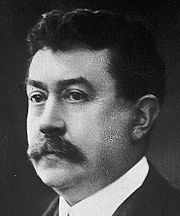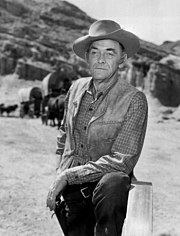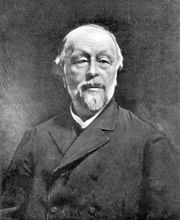Design
Design
Personality
Chart Properties
Your Cross represents the specific theme of your life. This cross embodies your unique potential & the lessons you're here to learn, providing a roadmap to fulfilling your life purpose.
We use the UTC birth time and date to do the calculations required to generate your Human Design chart.
Buy Tokens
Pay as you use, no expiry and no subscription required.Howard Dean's Biography
American politician and physician, Dean announced his candidacy for the Democratic nomination for President on June 23, 2003 in Burlington, VT. A medical doctor, he ran for his first political office in 1982 and was elected Lieutenant Governor in 1986. He assumed the gubernatorial seat when then-governor Richard Snelling died unexpectedly in office on August 14, 1991. Dean was then elected Governor of Vermont in the next five elections, every two years beginning in 1992. He did not seek re-election in 2002, focusing his efforts on higher aspirations.
He has conducted his presidential campaign from the grass roots up. He has raised more money than his Democratic Party opponents through the modern day version of a grass roots campaign –by using the Internet as another means of taking his story to the people. He appeals widely to young people who might be otherwise be disillusioned by politics. On November 9, 2003, he announced that he would not accept federal campaign financing, relying on his ability to raise the necessary capital directly from his supporters.
As governor, he was fiscally conservative and was labeled a “tight-fisted liberal.” Balancing the budget while providing medical coverage, child care and educational benefits to the vast majority of his constituents and protecting the environment became his mission. Articulate and outspoken, he has been described as “capable of both contrariness and courage.”
Born the eldest of four boys to a conservative stockbroker father and senior executive at a prestigious investment company, Dean grew up in a Park Avenue high-rise. The family, members of New York elite who could trace their roots back to the 16th century, spent weekends and summers in East Hampton. Dean rebelled in small ways, such as wearing his hair long and saying the unexpected to people in authority. Having spent the year after prep school in Britain, he matriculated at Yale in 1967 as a third generation Yalie. Liking a good party and preferring diverse experiences, his grades were mediocre. Although he wanted to leave Yale during his freshman year because he felt directionless, he stayed to please his father. After his graduation in 1971, with a medical deferment that freed him from military service and with a trust fund of $25,000, he traveled to Aspen, Colorado where he spent his time skiing, working in odd jobs and partying. After 10 months of resort life, he returned home, unsure of what to do, but wanting to change the world. Trying to follow in his father’s footsteps, he signed on with the firm of Clark Dodge as a broker, but the job went badly and he wasn’t satisfied. He signed up to volunteer at St. Vincent’s Hospital and amid emergency room crises decided he wanted to enter medicine.
One of his defining moments centered on the disappearance in Viet Nam of his next oldest brother, Charlie, a political activist who for indeterminate reasons went to Southeast Asia. In October 1974, word came that Charlie had been kidnapped by the Pathet Lao. In May, 1975, the family learned that Charlie had been killed. That year, a more serious and focused Dean entered Albert Einstein College of Medicine and met Judith Steinberg, the daughter of doctors, who had grown up in Roslyn, Long Island. He did his medical residency in Burlington VT and practiced medicine from 1981 to 1991, a family practitioner among Burlington’s blue-collar, primarily Democratic, population. On November 18, 2003, one day after his birthday, a somber Dean announced that his brother’s remains had been found.
Dean first entered politics in 1978, by championing the building of a bicycle path around Lake Champlain. Working on the Jimmy Carter’s 1980 re-election campaign, he established a long-time important relationship with Esther Sorrell, a well-known Democratic organizer in Vermont. With her support he was elected a delegate to the 1980 Democratic National Convention. In 1982, he won a tough election over the favored incumbent for a representative’s seat in the State House and took office in 1983. In 1984, he won the House minority whip position and opted to run for the position of Lieutenant Governor in 1986, a position he held until 1991 when he became Governor.
Dean and his wife married in 1981 and have two children, daughter Anne and son Paul. His father, admittedly a huge influence in his life, died in 2001, likely giving his eldest son his much-wanted approval. On December 9, 2003, Al Gore publicly endorsed Dean’s candidacy, catapulting Dean’s political future, already promising, to a new level. Despite his initial meteoric rise, he fared badly in nearly all primaries in January-February 2004 and ended his campaign on February 18, 2004. He left his name on the ballot of many states, however, telling his supporters “I am no longer actively pursuing the presidency; we will however continue to build our grassroots network in order to continue to change the Democratic Party and to change the country.”
On February 12, 2005, the Democratic National Committee elected Dean as its chairperson, a position he held until 2009.
Link to Wikipedia biography
Link to Astrodienst discussion forum
Howard Dean
Your Cross represents the specific theme of your life. This cross embodies your unique potential & the lessons you're here to learn, providing a roadmap to fulfilling your life purpose.
We use the UTC birth time and date to do the calculations required to generate your Human Design chart.







